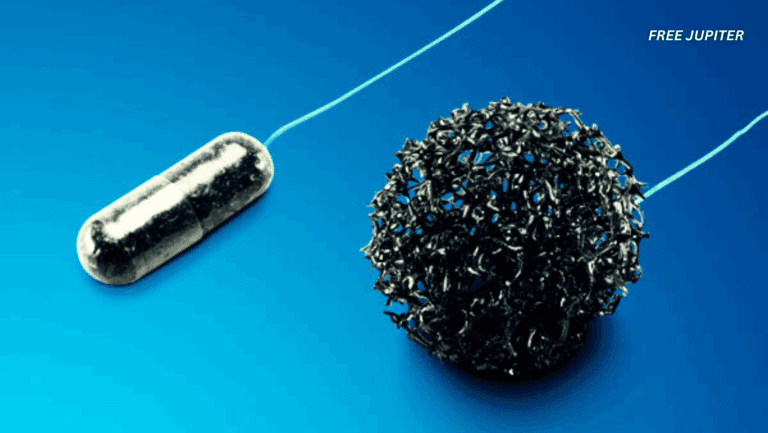Imagine a world where a medication sitting in millions of medicine cabinets might hold clues to slowing the biological clock. Recent research hints that rilmenidine-a drug prescribed for hypertension since the 1980s-could do more than manage blood pressure. Studies in worms and mice suggest it activates cellular pathways linked to longevity, offering a tantalizing “shortcut” to the benefits of strict diets without the lettuce-and-watercress austerity. Researchers observed that treated worms not only lived longer but also maintained youthful vigor, scurrying through their tiny habitats with the energy of their younger counterparts, while mice showed gene activity patterns akin to those on calorie-restricted diets-a gold standard for longevity science.
What’s even more intriguing is that rilmenidine is already widely available and affordable, with generic versions costing as little as a few cents per pill in some regions. Its decades-long safety record and oral dosing convenience make it a uniquely practical candidate for repurposing. If these findings translate to humans, it could democratize access to anti-aging interventions, offering a low-cost, low-risk option for promoting healthier aging across diverse populations. Let’s unpack what science says about this accidental fountain-of-youth candidate.
Worms, Mice, and the Quest to Cheat Time
In a series of experiments that sound like sci-fi, researchers dosed C. elegans roundworms-a species no longer than a comma-with rilmenidine. These creatures, often dubbed “living test tubes” for their genetic similarities to humans, saw their lifespans stretch by up to 20%. Older worms, equivalent to humans in their 70s, also showed improved mobility and resilience, suggesting the drug isn’t just adding years but enhancing vitality.
Mice studies added another layer: liver and kidney tissues in treated rodents displayed gene activity patterns mirroring those seen in calorie-restricted diets. Since caloric restriction is the gold standard for lifespan extension in animals, this overlap hints that rilmenidine might mimic nature’s oldest longevity hack-without the hangry side effects.
The Science of Cellular Sleight-of-Hand
So, how does a blood pressure pill pull this off? The answer lies in a cellular switch called the nish-1 receptor. When scientists disabled this receptor in worms, rilmenidine’s lifespan-boosting effects vanished. Restore the receptor? The benefits came roaring back. This receptor, also present in humans, acts like a biological interpreter, translating the drug’s signals into cellular actions that promote survival.
Read more: Here Are The Cat Breeds With The Longest Lifespans, According to Experts
Key mechanisms at play:
- Autophagy Activation: Think of this as the body’s recycling program. Rilmenidine appears to ramp up the removal of damaged cellular components, a process that declines with age.
- FOXO/DAF-16 and SKN-1 Pathways: These genetic “longevity regulators,” conserved across species, were essential for the drug’s effects.
- No AMPK Dependency: Unlike some anti-aging compounds, rilmenidine doesn’t rely on energy-sensing pathways, suggesting a unique mode of action.
Why Caloric Restriction Mimetics Matter
For decades, slashing calories by 20–40% has been the most reliable way to extend lifespan in lab animals. But for humans, sustained calorie restriction often backfires, leading to nutrient deficiencies, muscle loss, and a general sense of misery. Rilmenidine offers a workaround: triggering similar cellular benefits without the dinner plate drama.
Caloric Restriction vs. Rilmenidine
| Factor | Caloric Restriction | Rilmenidine |
|---|---|---|
| Lifespan Extension | Proven in animals | Mimicked in worms/mice |
| Feasibility | Challenging long-term | Oral pill, already prescribed |
| Side Effects | Fatigue, bone loss | Mild (drowsiness in some) |
| Cellular Targets | Broad metabolic shifts | Nish-1 receptor, autophagy |
Read more: Scientists Say Dogs Are Entering In a New Stage of Evolution
From Lab Bench to Pharmacy Shelf
What makes rilmenidine stand out in the crowded field of longevity candidates? Three pragmatic perks:
- Safety Profile: Decades of use for hypertension mean its risks are well-documented-and rare.
- Oral Availability: No injections or infusions required, making it accessible.
- Late-Life Potential: Unlike interventions that require starting young, rilmenidine boosted lifespan even when given to older worms.
Professor João Pedro Magalhães, who led the University of Liverpool and Birmingham studies, notes, “The beauty of repurposing existing drugs is that we’re not starting from square one. We already know how to dose it, track it, and manage it in humans”.
The Elephant in the Lab: Will This Work in Humans?
Before swapping your multivitamins for rilmenidine, a reality check: worms and mice aren’t people. While C. elegans shares ~40% of our protein-coding genes, their biology is simpler-no kidneys, livers, or Netflix subscriptions to complicate things. The mice data, while promising, only show gene expression changes, not actual lifespan extension (yet).
That said, parallels exist:
- Autophagy’s Role: Enhanced cellular cleanup is linked to reduced age-related diseases in humans, from Alzheimer’s to heart disease.
- Nish-1 in Humans: The I1-imidazoline receptor targeted by rilmenidine exists in our bodies, though its longevity role remains unproven.
Aging Research’s New Playbook
This study exemplifies a shift in geroscience: mining existing medications for unexpected perks. Metformin (a diabetes drug) and rapamycin (an immunosuppressant) are also under scrutiny for anti-aging effects. Rilmenidine joins this club with a unique edge-it’s cheaper, simpler, and gentler than many contenders.
What’s Next?
- Human Trials: Researchers aim to test rilmenidine in clinical trials focused on age-related biomarkers, like inflammation or metabolic health.
- Broader Applications: Could this drug aid neurodegenerative diseases or metabolic disorders? Early mouse studies suggest it protects neurons, hinting at wider potential.
- Combination Therapies: Pairing rilmenidine with lifestyle changes or other longevity drugs might amplify benefits.
Read more: After 100 Years, Michigan’s Legendary ‘Ghost’ Species Finally Caught on Camera
The Bigger Picture: A Society Redefining Aging
With global populations aging rapidly-the number of people over 60 is set to double by 2050-even modest delays in age-related decline could ease healthcare burdens and improve quality of life. As Magalhães puts it, “We’re not chasing immortality. We’re aiming for an extra decade of health, not just existence”.
Final Thoughts
While rilmenidine isn’t a miracle pill (yet), its story underscores a thrilling truth: breakthroughs often hide in plain sight. The next chapter in aging research might not require futuristic tech but a fresh look at old tools. For now, the humble roundworm-a creature that wouldn’t fill a teaspoon-continues to light paths toward healthier, longer lives. And who knows? The key to turning back time might already be sitting in your grandma’s pill organizer.









